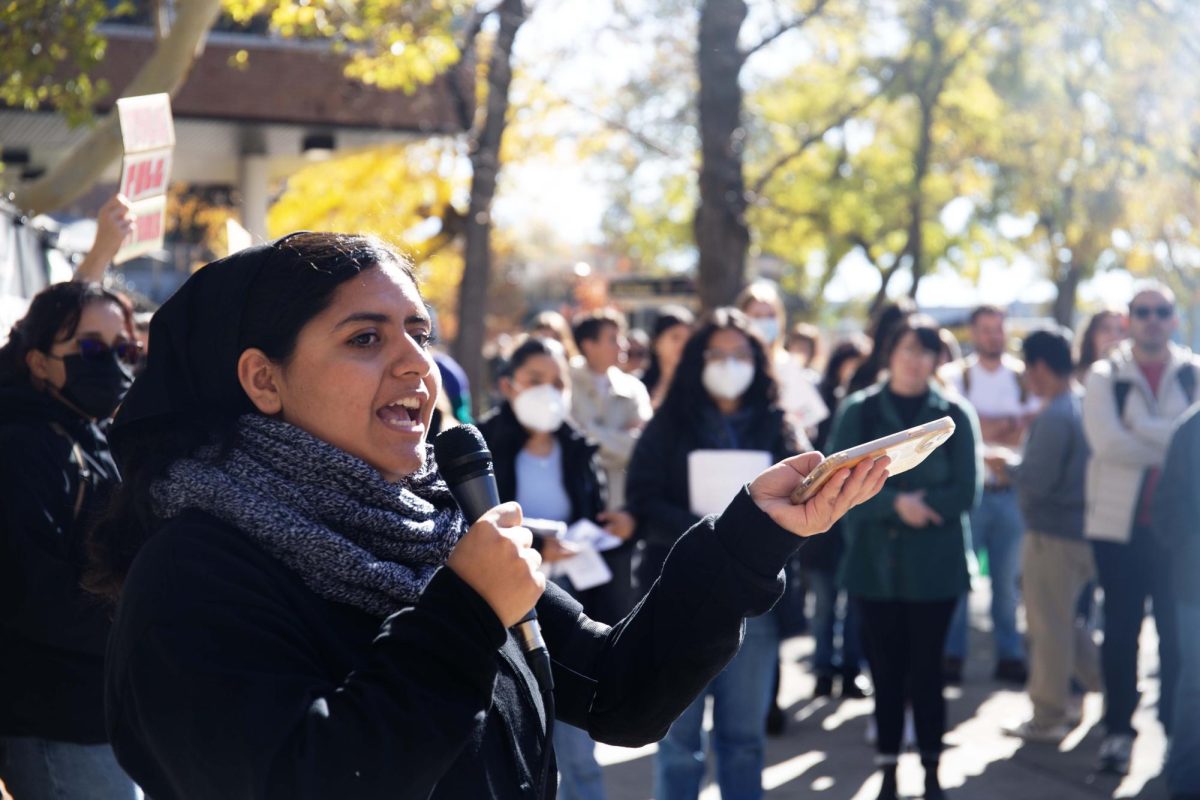In recent decades, the U.S. has become a politically polarized nation. While most people have similar beliefs regardless of party, contention on a handful of hot-button issues has created an antagonistic environment.
However, Gen Z, the youngest voting-age generation, is far more progressive. Socialism, in particular, is particularly popular among the next generation of Americans. However, the University of Utah’s actions and policies don’t reflect our generation’s political preferences.
With undue punishments levied against socialist student organizations and the defense of bigoted right-wing groups, the U promotes and enforces liberalism.
Liberalism: The American Standard
Americans often associate liberalism with the Democratic Party. People commonly view it as the ideology of societal progress or change, usually favoring regulatory policies and government intervention. According to Gallup, as of 2021, only around a quarter of Americans identified with liberal ideology, with most identifying as moderates.
However, in a broader philosophical sense, almost all Americans agree with liberalism. Outside American politics, liberalism holds that preserving individual liberty should be the main priority of governments. Often, it promotes things like freedom of religious expression, due process and, most importantly, free-market capitalism.
So, when people say that most Americans agree on most fundamental things, they often mean that they agree with liberalism.
While liberalism has induced much progress in the last few centuries and is philosophically diverse, it’s intrinsically right-wing and economically conservative.
While many liberal countries have robust welfare states and can be somewhat progressive, they still harbor exploitative multinational corporations. With Western nations’ support, these companies drain the global south and their nation’s workers of resources and labor.
Liberalism’s main priority is maintaining and expanding the exploitation inherent and necessary to capitalism. Consequently, even slight criticism of this liberal world order and corporate supremacy is immediately met with hasty criticism.
This is especially true in the U.S., where even our most left-leaning officials are forced into relatively moderate positions. Both parties openly denounce socialism and continually cater to economic elites instead of average working-class Americans. The only difference between a Republican and a Democrat is their willingness to be honest about it.
The U’s Enforced Stagnation
However, liberalism doesn’t only dominate our governments. While progressive compared to other schools in Utah, like BYU, the U clearly caters to liberal student organizations.
Earlier this school year, the U’s chapter of the right-wing organization Young Americans for Freedom openly advertised transphobic sentiments across campus. Of course, this isn’t the only time this has happened, as YAF regularly posts blatant hate against many groups. In response, an openly socialist student organization, Mecha, peacefully disrupted a YAF event. However, the U punished Mecha instead of YAF, which many faculty members found disagreeable.
The U again displayed its impotence at a recent YAF event, allowing known transphobe Michael Knowles to spread his hateful views. Before Knowles’ speech, a U official lauded the importance of mutual respect and freedom of speech. This was accompanied by threats of forcible removal to anyone who dared interrupt someone who once said, “transgenderism must be eradicated from public life entirely.”
Julio Irungaray, a student at the U and a leader of Mecha, expressed his feelings about this issue with the Chronicle. When asked if he felt the U supported one side or another, he said, “It’s absolutely on the side of the right wing.” Irungaray’s reasoning behind this claim is that “the university is not really an educational institution. It’s just a money-making scheme.” Given recent tuition increases and inadequate wages, these claims are far from inaccurate.
Consequently, it’s easy to see why the U practically lets YAF act freely. As an organization “backed by oil billionaires,” Irungaray says that YAF “can pull up a very expensive lawsuit for the university,” thus shielding themselves from any repercussions.
YAF openly commits stochastic terrorism, demonizing entire groups of people for their political agenda. But the U, in its liberal position, can’t side with or even adequately defend marginalized groups. It must remain submissive in the face of injustice, even taking arms with them. Otherwise, they’d be infringing on someone’s ill-given right to endanger, demonize and alienate.
A Warning to Incoming Students
Incoming students who believe the U to be a progressive, safe place should take this event as a warning. While outwardly dedicated to ensuring safety from discrimination, the U falters in the face of adversity.
Not only this, but our university punishes those who attempt to oppose hate themselves. If you come to this place with a passion to do and promote what is just, prepare yourself for adversity — not only from hateful opponents but also from this administration.
At the end of our interview, Irungaray reminds students that “organizing is an absolute necessity.” Regardless of the hurdles that work to impede student-backed change, “new incoming students have to be prepared to fight, organize and struggle.”
The U isn’t a haven for the marginalized, as it may seem from the outside. And as long as our administration shies away from siding against hate, it won’t.
As attending and incoming students, we have to hold our administration accountable for its actions. No longer should we allow the U to take this hypocritical, submissive stance when it comes to right-wing extremism.
And as the next generation of citizens, we cannot allow liberalism to promote exploitation and bigotry. A future where all are equally and equitably treated is worth fighting for.




